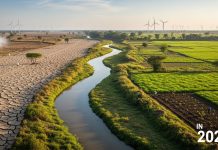The raising of international awareness on the Lake Chad Basin and efforts of Nigeria to promote sustainable development, peace and security is a major issue to be discussed during the visit of Ms María Espinosa, President of the United Nations General Assembly.
She is due to be in Nigeria on Monday on the invitation of the Nigerian Government to strengthen bilateral relations between Nigeria and the United Nations.
Mr Oluseyi Soremekun, the spokesperson, United Nations Information Centre said on Sunday in Lagos.
Soremekun said that during her mission, she will further discuss the priorities of the UN General Assembly as related to women and youth empowerment, raise awareness and encourage understanding of the importance of multilateralism and the UN.
“While in Nigeria, the President of the UN General Assembly will have bilateral meetings with President Muhammadu Buhari, and Minister of Foreign Affairs, Geoffrey Onyeama.
“She will also engage with students and youths on the theme: Responding to Global Challenges in a fast-Changing World: The Case for Strengthening Multilateralism”.
“Espinosa will also discuss with a women audience on the theme: `The Role of Women in the Promotion of Multilateralism”.
“She is scheduled to also meet with the Minister of Women Affairs and Social Development, Hajiya Aisha Abubakar,’’ Soremekun said.
Soremekun said that Espinosa will be received at the Nnamdi Azikiwe International Airport Abuja, by a representative of the Nigerian Government and Mr Edward Kallon, United Nations Resident Coordinator in Nigeria.
According to him, this was the second official visit of Espinosa, President of the 73rd Session of the UN General Assembly to the African region since taking over the presidency.
He said that on June 5, 2018, the United Nations General Assembly elected Espinosa who was then Ecuadorean Foreign Minister as President, the fourth woman to hold that position and the first since 2006.
Somerekun disclosed that she has more than 20 years of multilateral experience in international negotiations, peace, security, defence, disarmament, human rights, indigenous peoples, gender equality, sustainable development environment, biodiversity, climate change and multilateral cooperation.

















